What up, comrades of chaos, from the sunburned sands of South Padre, Texas—a land of tequila fumes and dubious life choices!
Your favorite brain-obsessed nerd is here, neck-deep in scientific sorcery, prepping for tonight’s spectacle: Tyson versus Jake Paul, a fight destined to be etched in the annals of absurdity.
Are you watching this madness?
Oh, I am.
Hell, it’s on Netflix, which means I can stream it while surrounded by people pretending this is anything but a glorious train wreck.
But let’s cut the pretense—normally, I’d bet this thing was as rigged as a county fair carnival game. Except… one word: Tyson.
This isn’t just any Tyson. This is Mike Friggin’ Tyson, a human wrecking ball. He doesn’t do “moderate.” The man would punch through a tank if it got in his way.
Jake Paul? Ha! That poor bastard is about to learn the true meaning of consequences.
Sure, Tyson’s inching toward his AARP membership, but do you think he’s lost the taste for carnage?
No way! This is a man who once threatened to eat another guy’s children. So yeah, Jake might want to revisit his life insurance policy—or maybe hire a wizard.
And just for kicks, let’s pretend for a second that Jake Paul was my client. What would I do to get this dude’s brain ready for Tyson’s patented, Welcome to Pluto punch?
As you know, I work as an Associate Professor at the Carrick Institute where I’ve created training programs on nutrition and concussion along with private consulting for nutrition / supplement interventions both pre and post concussion with a wide variety of athletes from every day weekend warriors to certain starting big name NFL quarterbacks.
This is for entertainment only—lawyers, take a Xanax – and buckle up.
Sidenote: If you want a one stop shop review study that is open access, check out Mitigating Traumatic Brain Injury: A Narrative Review of Supplementation and Dietary Protocols
Featuring my buddies and current 1-1 M3 client Dr Tommy Wood and my good friend from Rapid Health, Dr Andy Galpin and friends.
Nutrition and Supplements: Concussion and TBI
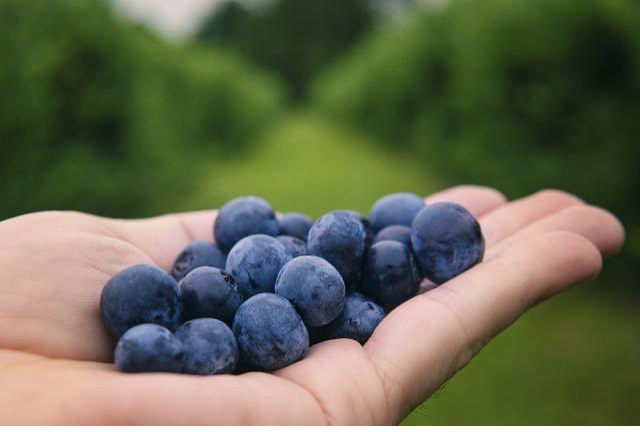
Image by Joshua Woroniecki from Pixabay
1) Micronutrient-Rich Nutrition
Oh, the boring basics—get more veggies, more fruit.
Don’t let that naked grocery getter guy fool you; broccoli isn’t out to assassinate you and is far from BS.
Science backs me here: veggies and fruits = better health, reduced cardiovascular risk, weight loss, and all that jazz [1-8]. But if I had to double down, I’d bet my last margarita on blueberries. The little blue bastards are brain food [9-12].
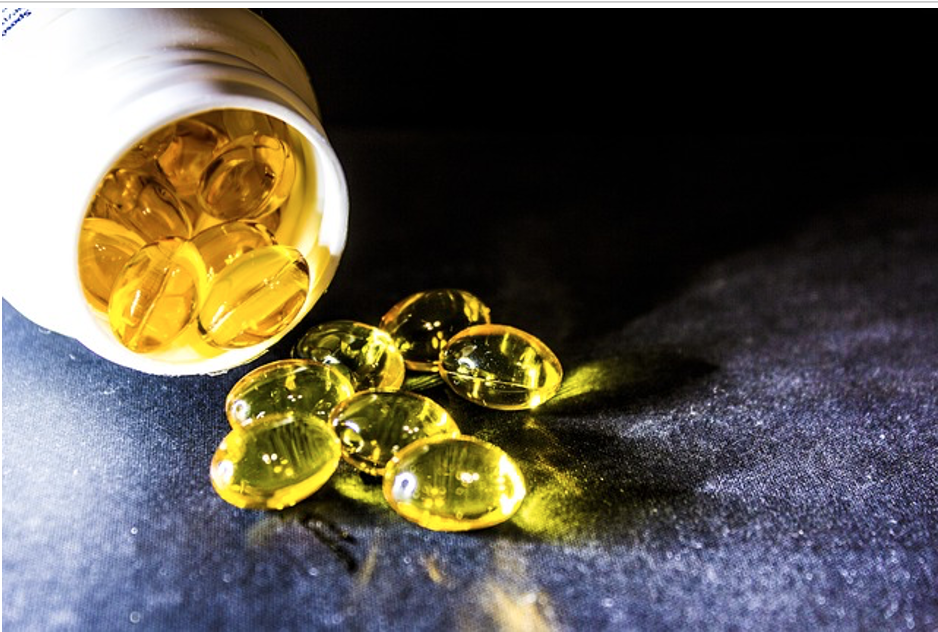
Image by Ewa Urban from Pixabay
2) Fish Oils: Brain Lube for the Brave
EPA and DHA—these are your allies in the war against brain trauma. The science? Humans, animals, you name it, most of the data has shown benefits. [13-19].
When I work with my M3 1-1 clients online, we dive deep into the blood trenches with a home blood spot test that lets me peer into every darn lipid in their body—yep, even their fish oils.
But it’s not just any test. This one has the Omega-3 Index, which gives me a crystal ball into the red blood cell membrane, showing me the last 2-3 months of their fish oil intake. I can see if those precious oils are actually getting into the cells where they’re supposed to be doing their magic—not just floating around aimlessly.
And hey, the brainiacs at Rapid Health are doing the same for their clients too (full disclosure, I roll with them as well). We’re all about tracking the data that counts; not just guessing and crossing our fingers.
My fav fish oil is from Driven Nutrition at www.miketnelsonfishoil.com.
Use code DRMIKE at checkout to save some dinero.
Yes, this is an affiliate link so I make a few coins off it.
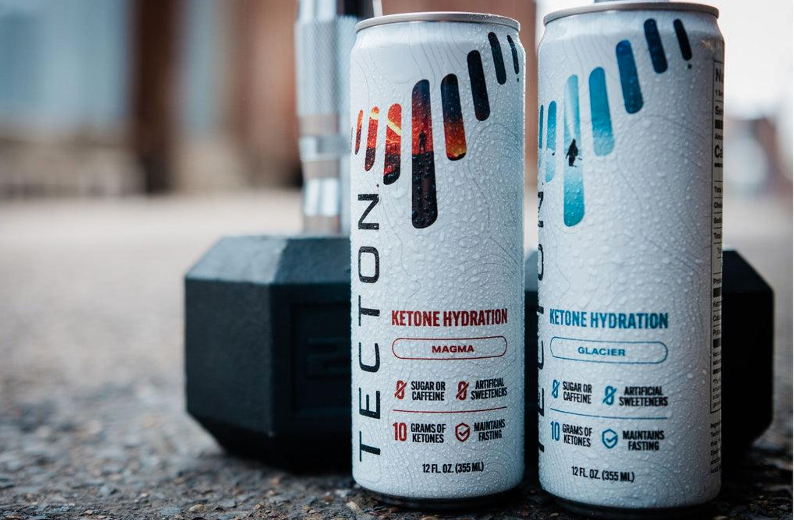
pic from tectonlife.com
3) Ketones: The Rocket Fuel of Concussion Recovery
Ketones are the Swiss Army knife of the brain—fighting inflammation and giving you backup power when the lights go out upstairs [20-31]. Forget keto diets; they tank your power output. Here is a full article below that goes into detail on it . . .
Ketogenic Power Poo Poo
Forget about slaving away on a keto diet to get the benefits of ketones—now, with ketone supplements, you can skip the whole carb-cutting and just ride the high.
This is a game-changer, especially since long-term keto diets can actually slow you down, sap your top-end speed and power—something you absolutely do not want if you’re trying to perform at your peak.
Enter Tecton. This stuff is a ketone ester made from BHB (the big daddy of ketones) bonded to glycerol, which makes it absorbable.
See, BHB alone has about as much chance of getting into your bloodstream as a stone in a water balloon. Ketone salts? They might give you a little bump, but most people will tap out at 1.5 mmol of blood ketones before disaster pants take over.
Tecton’s the real deal—it’s got the science backing it, and you can take a serious haul without worrying about exploding. The dose data is still catching up, but I’m rolling with 20 grams at once (that’s 2 cans) and repeating that a few times throughout the day.
Personally, I stash a bunch of cans in my bag here in South Padre, just in case I take a 20-foot nose dive into the water.
Oh, and full disclosure: I’m a Scientific Advisor and Ambassador for Tecton. So, if you wanna give it a shot, head to Tecton Life and use the code DRMIKE to save 20%. You’re welcome.
If you want to go hard down the nerd chut on the effects of ketones / the ketogenic diet on concussion and TBI, check out the full presentation I did for my personal neurologist, Dr Jeremy Schmoe.
The Effects of a Ketogenic Diet on Traumatic Brain Injury – Dr. Jeremy Schmoe with Dr. Mike T as guest.
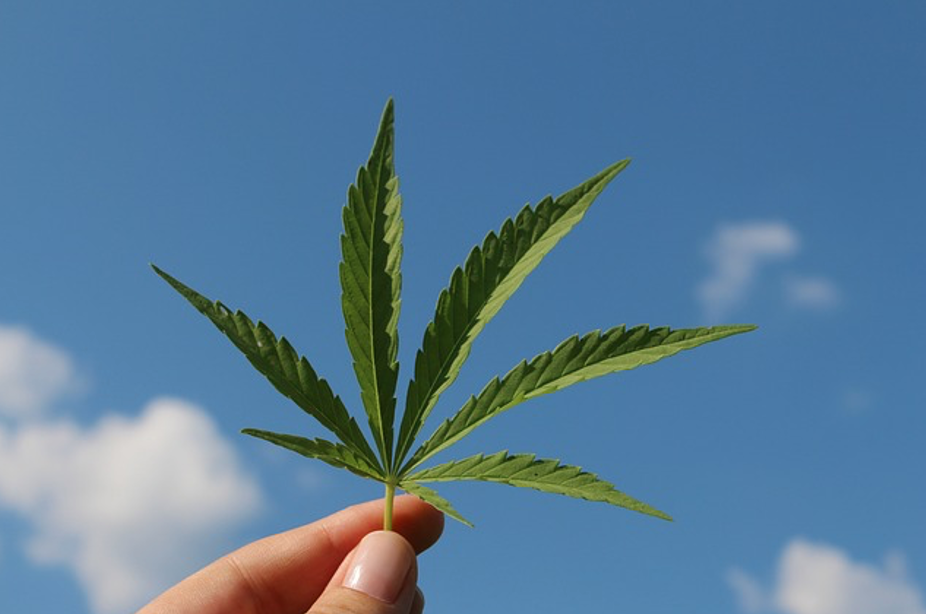
Image by TinaKru from Pixabay
4) THC/CBD: The Green Revolution
Cannabis for concussions? Hell yes. Studies suggest CBD might even keep your blood-brain barrier intact after Tyson turns your skull into a gong [32-45].
Dosing? Upper-end CBD at 200-400 mg, but bioavailability is tricky.
If you want a white paper that I wrote, check out the link below:
Cannabis and Concussion: A Nutritional Option to Traumatic Brain Injury?
5) Creatine: Not Just for Meatheads
Creatine isn’t just for gym bros flexing in mirrors—it’s brain fuel [46-53]. The data on concussions is mixed, but there’s a mountain of proof that it’s safe [54-57].
For brain saturation, you’ll need higher doses. Consider 10-20 grams per day.
Stick to creatine monohydrate. It’s cheap, effective, and my pick is Driven Nutrition (code DRMIKE for discounts). www.miketnelsoncreatine.com
Bonus Tip: Find a Functional Neurologist
You’ll need a pro to put the pieces back together. Shoutout to my buddy Dr. Schmoe! If you’re curious about the bigger picture of brain health, check out my podcast with Dr. Kornfeld here.
Tonight’s Nap Prediction
When Tyson flattens Jake Paul into the mat, these are the tools I’d use to help him crawl back to reality.
What do you think? Am I onto something?
Let’s hear your thoughts.
Much love and brain health,
Dr. Mike
References
1. Yuan S, Yu HJ, Liu MW, Huang Y, Yang XH, Tang BW, et al. The association of fruit and vegetable consumption with changes in weight and body mass index in Chinese adults: a cohort study. Public Health. 2018;157:121-6. Epub 20180320. doi: 10.1016/j.puhe.2018.01.027. PubMed PMID: 29524810.
2. Wilunda C, Sawada N, Goto A, Yamaji T, Takachi R, Ishihara J, et al. Associations between changes in fruit and vegetable consumption and weight change in Japanese adults. Eur J Nutr. 2021;60(1):217-27. Epub 20200406. doi: 10.1007/s00394-020-02236-x. PubMed PMID: 32253544.
3. Dreher ML, Ford NA. A Comprehensive Critical Assessment of Increased Fruit and Vegetable Intake on Weight Loss in Women. Nutrients. 2020;12(7). Epub 20200629. doi: 10.3390/nu12071919. PubMed PMID: 32610460; PubMed Central PMCID: PMCPMC7399879.
4. Akers JD, Cornett RA, Savla JS, Davy KP, Davy BM. Daily self-monitoring of body weight, step count, fruit/vegetable intake, and water consumption: a feasible and effective long-term weight loss maintenance approach. J Acad Nutr Diet. 2012;112(5):685-92.e2. Epub 20120425. doi: 10.1016/j.jand.2012.01.022. PubMed PMID: 22709772; PubMed Central PMCID: PMCPMC3378982.
5. Vergnaud AC, Norat T, Romaguera D, Mouw T, May AM, Romieu I, et al. Fruit and vegetable consumption and prospective weight change in participants of the European Prospective Investigation into Cancer and Nutrition-Physical Activity, Nutrition, Alcohol, Cessation of Smoking, Eating Out of Home, and Obesity study. Am J Clin Nutr. 2012;95(1):184-93. Epub 20111214. doi: 10.3945/ajcn.111.019968. PubMed PMID: 22170373.
6. Hartley L, Igbinedion E, Holmes J, Flowers N, Thorogood M, Clarke A, et al. Increased consumption of fruit and vegetables for the primary prevention of cardiovascular diseases. Cochrane Database Syst Rev. 2013;2013(6):Cd009874. Epub 20130604. doi: 10.1002/14651858.CD009874.pub2. PubMed PMID: 23736950; PubMed Central PMCID: PMCPMC6464871.
7. Kaiser KA, Brown AW, Bohan Brown MM, Shikany JM, Mattes RD, Allison DB. Increased fruit and vegetable intake has no discernible effect on weight loss: a systematic review and meta-analysis. Am J Clin Nutr. 2014;100(2):567-76. Epub 20140625. doi: 10.3945/ajcn.114.090548. PubMed PMID: 24965308; PubMed Central PMCID: PMCPMC4095660.
8. Castro-Barquero S, Lamuela-Raventós RM, Doménech M, Estruch R. Relationship between Mediterranean Dietary Polyphenol Intake and Obesity. Nutrients. 2018;10(10). Epub 20181017. doi: 10.3390/nu10101523. PubMed PMID: 30336572; PubMed Central PMCID: PMCPMC6213078.
9. Krikorian R, Shidler MD, Nash TA, Kalt W, Vinqvist-Tymchuk MR, Shukitt-Hale B, Joseph JA. Blueberry supplementation improves memory in older adults. J Agric Food Chem. 2010;58(7):3996-4000. doi: 10.1021/jf9029332. PubMed PMID: 20047325; PubMed Central PMCID: PMCPMC2850944.
10. Whyte AR, Schafer G, Williams CM. Cognitive effects following acute wild blueberry supplementation in 7- to 10-year-old children. Eur J Nutr. 2016;55(6):2151-62. Epub 20151005. doi: 10.1007/s00394-015-1029-4. PubMed PMID: 26437830.
11. Boespflug EL, Eliassen JC, Dudley JA, Shidler MD, Kalt W, Summer SS, et al. Enhanced neural activation with blueberry supplementation in mild cognitive impairment. Nutr Neurosci. 2018;21(4):297-305. Epub 20170221. doi: 10.1080/1028415x.2017.1287833. PubMed PMID: 28221821; PubMed Central PMCID: PMCPMC6093614.
12. Whyte AR, Cheng N, Fromentin E, Williams CM. A Randomized, Double-Blinded, Placebo-Controlled Study to Compare the Safety and Efficacy of Low Dose Enhanced Wild Blueberry Powder and Wild Blueberry Extract (ThinkBlue™) in Maintenance of Episodic and Working Memory in Older Adults. Nutrients. 2018;10(6). Epub 20180523. doi: 10.3390/nu10060660. PubMed PMID: 29882843; PubMed Central PMCID: PMCPMC6024810.
13. Heileson JL, Funderburk LK, Cardaci TD. Applications of Fish Oil Supplementation for Special Operators. Journal of special operations medicine : a peer reviewed journal for SOF medical professionals. 2021;21(1):78-85. PubMed PMID: 33721311.
14. Wang T, Van KC, Gavitt BJ, Grayson JK, Lu YC, Lyeth BG, Pichakron KO. Effect of fish oil supplementation in a rat model of multiple mild traumatic brain injuries. Restor Neurol Neurosci. 2013;31(5):647-59. Epub 2013/07/10. doi: 10.3233/RNN-130316. PubMed PMID: 23835930.
15. Avraham Y, Saidian M, Burston JJ, Mevorach R, Vorobiev L, Magen I, et al. Fish oil promotes survival and protects against cognitive decline in severely undernourished mice by normalizing satiety signals. J Nutr Biochem. 2011;22(8):766-76. Epub 20101215. doi: 10.1016/j.jnutbio.2010.07.001. PubMed PMID: 21109417; PubMed Central PMCID: PMCPMC3117120.
16. Ghasemi Fard S, Wang F, Sinclair AJ, Elliott G, Turchini GM. How does high DHA fish oil affect health? A systematic review of evidence. Crit Rev Food Sci Nutr. 2019;59(11):1684-727. Epub 2018/03/02. doi: 10.1080/10408398.2018.1425978. PubMed PMID: 29494205.
17. Mills JD, Bailes JE, Sedney CL, Hutchins H, Sears B. Omega-3 fatty acid supplementation and reduction of traumatic axonal injury in a rodent head injury model. J Neurosurg. 2011;114(1):77-84. Epub 2010/07/20. doi: 10.3171/2010.5.JNS08914. PubMed PMID: 20635852.
18. Zhang E, Wan X, Yang L, Wang D, Chen Z, Chen Y, et al. Omega-3 Polyunsaturated Fatty Acids Alleviate Traumatic Brain Injury by Regulating the Glymphatic Pathway in Mice. Front Neurol. 2020;11:707. Epub 2020/08/09. doi: 10.3389/fneur.2020.00707. PubMed PMID: 32765412; PubMed Central PMCID: PMCPMC7380115.
19. Ellulu MS, Khaza’ai H, Abed Y, Rahmat A, Ismail P, Ranneh Y. Role of fish oil in human health and possible mechanism to reduce the inflammation. Inflammopharmacology. 2015;23(2-3):79-89. Epub 2015/02/14. doi: 10.1007/s10787-015-0228-1. PubMed PMID: 25676565.
20. Salberg S, Weerwardhena H, Collins R, Reimer RA, Mychasiuk R. The behavioural and pathophysiological effects of the ketogenic diet on mild traumatic brain injury in adolescent rats. Behavioural brain research. 2019;376:112225. Epub 2019/09/14. doi: 10.1016/j.bbr.2019.112225. PubMed PMID: 31518660.
21. Hasselbalch SG, Knudsen GM, Jakobsen J, Hageman LP, Holm S, Paulson OB. Blood-brain barrier permeability of glucose and ketone bodies during short-term starvation in humans. The American journal of physiology. 1995;268(6 Pt 1):E1161-6. Epub 1995/06/01. doi: 10.1152/ajpendo.1995.268.6.E1161. PubMed PMID: 7611392.
22. Cunnane SC, Courchesne-Loyer A, Vandenberghe C, St-Pierre V, Fortier M, Hennebelle M, et al. Can Ketones Help Rescue Brain Fuel Supply in Later Life? Implications for Cognitive Health during Aging and the Treatment of Alzheimer’s Disease. Front Mol Neurosci. 2016;9:53. Epub 2016/07/28. doi: 10.3389/fnmol.2016.00053. PubMed PMID: 27458340; PubMed Central PMCID: PMCPMC4937039.
23. Prins ML, Matsumoto JH. The collective therapeutic potential of cerebral ketone metabolism in traumatic brain injury. Journal of lipid research. 2014;55(12):2450-7. Epub 2014/04/12. doi: 10.1194/jlr.R046706. PubMed PMID: 24721741; PubMed Central PMCID: PMCPMC4242438.
24. White H, Venkatesh B, Jones M, Kruger PS, Walsham J, Fuentes H. Inducing ketogenesis via an enteral formulation in patients with acute brain injury:a phase II study. Neurol Res. 2020;42(4):275-85. Epub 2020/02/27. doi: 10.1080/01616412.2019.1709743. PubMed PMID: 32098578.
25. Rippee MA, Chen J, Taylor MK. The Ketogenic Diet in the Treatment of Post-concussion Syndrome-A Feasibility Study. Frontiers in nutrition. 2020;7:160. Epub 2020/10/06. doi: 10.3389/fnut.2020.00160. PubMed PMID: 33015129; PubMed Central PMCID: PMCPMC7511571.
26. Deng-Bryant Y, Prins ML, Hovda DA, Harris NG. Ketogenic diet prevents alterations in brain metabolism in young but not adult rats after traumatic brain injury. Journal of neurotrauma. 2011;28(9):1813-25. Epub 2011/06/04. doi: 10.1089/neu.2011.1822. PubMed PMID: 21635175; PubMed Central PMCID: PMCPMC3172875.
27. Kossoff E, Turner Z, Cervenka MC, Henry BJ. Ketogenic diet therapies for epilepsy and other conditions. Seventh edition. ed. New York: Demos Health/Springer Publishing Company, LLC; 2021. pages cm p.
28. Ciarlone SL, Grieco JC, D’Agostino DP, Weeber EJ. Ketone ester supplementation attenuates seizure activity, and improves behavior and hippocampal synaptic plasticity in an Angelman syndrome mouse model. Neurobiol Dis. 2016;96:38-46. Epub 2016/10/19. doi: 10.1016/j.nbd.2016.08.002. PubMed PMID: 27546058.
29. Bernini A, Masoodi M, Solari D, Miroz JP, Carteron L, Christinat N, et al. Modulation of cerebral ketone metabolism following traumatic brain injury in humans. Journal of cerebral blood flow and metabolism : official journal of the International Society of Cerebral Blood Flow and Metabolism. 2020;40(1):177-86. Epub 2018/10/26. doi: 10.1177/0271678X18808947. PubMed PMID: 30353770; PubMed Central PMCID: PMCPMC6928557.
30. White H, Venkatesh B, Jones M, Fuentes H. Serial changes in plasma ketone concentrations in patients with acute brain injury. Neurol Res. 2017;39(1):1-6. Epub 2016/10/30. doi: 10.1080/01616412.2016.1251695. PubMed PMID: 27788628.
31. Veech RL. The therapeutic implications of ketone bodies: the effects of ketone bodies in pathological conditions: ketosis, ketogenic diet, redox states, insulin resistance, and mitochondrial metabolism. Prostaglandins Leukot Essent Fatty Acids. 2004;70(3):309-19. Epub 2004/02/11. doi: 10.1016/j.plefa.2003.09.007. PubMed PMID: 14769489.
32. Nadler V, Biegon A, Beit-Yannai E, Adamchik J, Shohami E. 45Ca accumulation in rat brain after closed head injury; attenuation by the novel neuroprotective agent HU-211. Brain research. 1995;685(1-2):1-11. Epub 1995/07/10. PubMed PMID: 7583233.
33. Xu Z, Lv XA, Dai Q, Ge YQ, Xu J. Acute upregulation of neuronal mitochondrial type-1 cannabinoid receptor and it’s role in metabolic defects and neuronal apoptosis after TBI. Molecular brain. 2016;9(1):75. Epub 2016/08/04. doi: 10.1186/s13041-016-0257-8. PubMed PMID: 27485212; PubMed Central PMCID: PMCPMC4971620.
34. Arain M, Khan M, Craig L, Nakanishi ST. Cannabinoid agonist rescues learning and memory after a traumatic brain injury. Ann Clin Transl Neurol. 2015;2(3):289-94. Epub 2015/03/31. doi: 10.1002/acn3.163. PubMed PMID: 25815355; PubMed Central PMCID: PMCPMC4369278.
35. Ranieri R, Laezza C, Bifulco M, Marasco D, Malfitano AM. Cannabinoids and Neuro-Inflammation: Regulation of Brain Immune Response. Recent patents on CNS drug discovery. 2016;10(2):178-203. Epub 2016/06/24. PubMed PMID: 27334610.
36. Chen Y, Buck J. Cannabinoids protect cells from oxidative cell death: a receptor-independent mechanism. The Journal of pharmacology and experimental therapeutics. 2000;293(3):807-12. Epub 2000/06/28. PubMed PMID: 10869379.
37. Lopez-Rodriguez AB, Siopi E, Finn DP, Marchand-Leroux C, Garcia-Segura LM, Jafarian-Tehrani M, Viveros MP. CB1 and CB2 cannabinoid receptor antagonists prevent minocycline-induced neuroprotection following traumatic brain injury in mice. Cereb Cortex. 2015;25(1):35-45. Epub 2013/08/21. doi: 10.1093/cercor/bht202. PubMed PMID: 23960212.
38. Laaris N, Good CH, Lupica CR. Delta9-tetrahydrocannabinol is a full agonist at CB1 receptors on GABA neuron axon terminals in the hippocampus. Neuropharmacology. 2010;59(1-2):121-7. Epub 2010/04/27. doi: 10.1016/j.neuropharm.2010.04.013. PubMed PMID: 20417220; PubMed Central PMCID: PMCPMC2882293.
39. Donat CK, Fischer F, Walter B, Deuther-Conrad W, Brodhun M, Bauer R, Brust P. Early increase of cannabinoid receptor density after experimental traumatic brain injury in the newborn piglet. Acta Neurobiol Exp (Wars). 2014;74(2):197-210. Epub 2014/07/06. PubMed PMID: 24993629.
40. Nguyen BM, Kim D, Bricker S, Bongard F, Neville A, Putnam B, et al. Effect of marijuana use on outcomes in traumatic brain injury. The American surgeon. 2014;80(10):979-83. Epub 2014/09/30. PubMed PMID: 25264643.
41. Panikashvili D, Shein NA, Mechoulam R, Trembovler V, Kohen R, Alexandrovich A, Shohami E. The endocannabinoid 2-AG protects the blood-brain barrier after closed head injury and inhibits mRNA expression of proinflammatory cytokines. Neurobiol Dis. 2006;22(2):257-64. Epub 2005/12/21. doi: 10.1016/j.nbd.2005.11.004. PubMed PMID: 16364651.
42. Tasker JG, Chen C, Fisher MO, Fu X, Rainville JR, Weiss GL. Endocannabinoid Regulation of Neuroendocrine Systems. Int Rev Neurobiol. 2015;125:163-201. Epub 2015/12/08. doi: 10.1016/bs.irn.2015.09.003. PubMed PMID: 26638767.
43. Pagotto U, Pasquali R. Endocannabinoids and energy metabolism. Journal of endocrinological investigation. 2006;29(3 Suppl):66-76. Epub 2006/06/06. PubMed PMID: 16751710.
44. Schurman LD, Lichtman AH. Endocannabinoids: A Promising Impact for Traumatic Brain Injury. Front Pharmacol. 2017;8:69. Epub 2017/03/07. doi: 10.3389/fphar.2017.00069. PubMed PMID: 28261100; PubMed Central PMCID: PMCPMC5314139.
45. Vendel E, de Lange EC. Functions of the CB1 and CB 2 receptors in neuroprotection at the level of the blood-brain barrier. Neuromolecular medicine. 2014;16(3):620-42. Epub 2014/06/16. doi: 10.1007/s12017-014-8314-x. PubMed PMID: 24929655.
46. Toniolo RA, Fernandes FBF, Silva M, Dias RDS, Lafer B. Cognitive effects of creatine monohydrate adjunctive therapy in patients with bipolar depression: Results from a randomized, double-blind, placebo-controlled trial. Journal of affective disorders. 2017;224:69-75. Epub 2016/11/29. doi: 10.1016/j.jad.2016.11.029. PubMed PMID: 27890303.
47. Adhihetty PJ, Beal MF. Creatine and its potential therapeutic value for targeting cellular energy impairment in neurodegenerative diseases. Neuromolecular medicine. 2008;10(4):275-90. Epub 2008/11/14. doi: 10.1007/s12017-008-8053-y. PubMed PMID: 19005780; PubMed Central PMCID: PMCPMC2886719.
48. Turner CE, Byblow WD, Gant N. Creatine supplementation enhances corticomotor excitability and cognitive performance during oxygen deprivation. J Neurosci. 2015;35(4):1773-80. Epub 2015/01/30. doi: 10.1523/jneurosci.3113-14.2015. PubMed PMID: 25632150.
49. Rawson ES, Miles MP, Larson-Meyer DE. Dietary Supplements for Health, Adaptation, and Recovery in Athletes. Int J Sport Nutr Exerc Metab. 2018;28(2):188-99. Epub 2018/01/19. doi: 10.1123/ijsnem.2017-0340. PubMed PMID: 29345167.
50. Kieburtz K, Tilley BC, Elm JJ, Babcock D, Hauser R, Ross GW, et al. Effect of creatine monohydrate on clinical progression in patients with Parkinson disease: a randomized clinical trial. Jama. 2015;313(6):584-93. Epub 2015/02/11. doi: 10.1001/jama.2015.120. PubMed PMID: 25668262; PubMed Central PMCID: PMCPMC4349346.
51. Freire Royes LF, Cassol G. The Effects of Creatine Supplementation and Physical Exercise on Traumatic Brain Injury. Mini reviews in medicinal chemistry. 2016;16(1):29-39. Epub 2015/07/24. PubMed PMID: 26202200.
52. Klein AM, Ferrante RJ. The neuroprotective role of creatine. Sub-cellular biochemistry. 2007;46:205-43. Epub 2008/07/26. PubMed PMID: 18652079.
53. Zhu S, Li M, Figueroa BE, Liu A, Stavrovskaya IG, Pasinelli P, et al. Prophylactic creatine administration mediates neuroprotection in cerebral ischemia in mice. J Neurosci. 2004;24(26):5909-12. Epub 2004/07/02. doi: 10.1523/jneurosci.1278-04.2004. PubMed PMID: 15229238.
54. Stares A, Bains M. The Additive Effects of Creatine Supplementation and Exercise Training in an Aging Population: A Systematic Review of Randomized Controlled Trials. Journal of geriatric physical therapy (2001). 2019. Epub 2019/02/15. doi: 10.1519/jpt.0000000000000222. PubMed PMID: 30762623.
55. Andres S, Ziegenhagen R, Trefflich I, Pevny S, Schultrich K, Braun H, et al. Creatine and creatine forms intended for sports nutrition. Mol Nutr Food Res. 2017;61(6). Epub 2016/12/27. doi: 10.1002/mnfr.201600772. PubMed PMID: 28019093.
56. Butts J, Jacobs B, Silvis M. Creatine Use in Sports. Sports health. 2018;10(1):31-4. Epub 2017/10/24. doi: 10.1177/1941738117737248. PubMed PMID: 29059531; PubMed Central PMCID: PMCPMC5753968.
57. Kreider RB, Kalman DS, Antonio J, Ziegenfuss TN, Wildman R, Collins R, et al. International Society of Sports Nutrition position stand: safety and efficacy of creatine supplementation in exercise, sport, and medicine. J Int Soc Sports Nutr. 2017;14:18. Epub 2017/06/16. doi: 10.1186/s12970-017-0173-z. PubMed PMID: 28615996; PubMed Central PMCID: PMCPMC5469049. Here


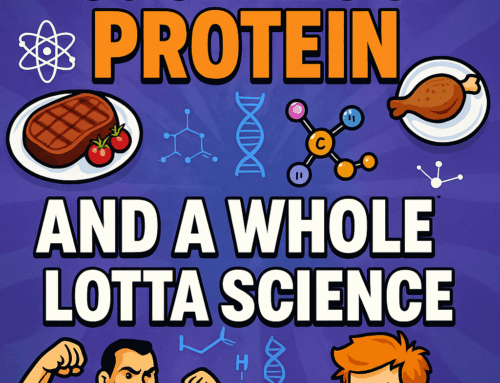
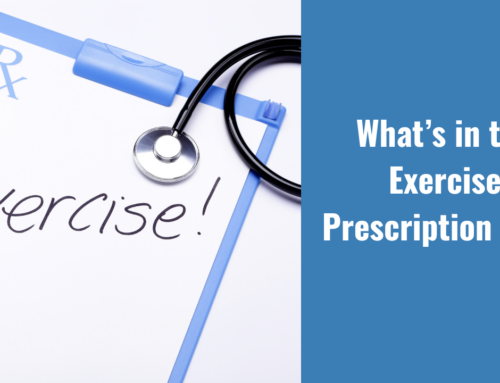
Leave A Comment